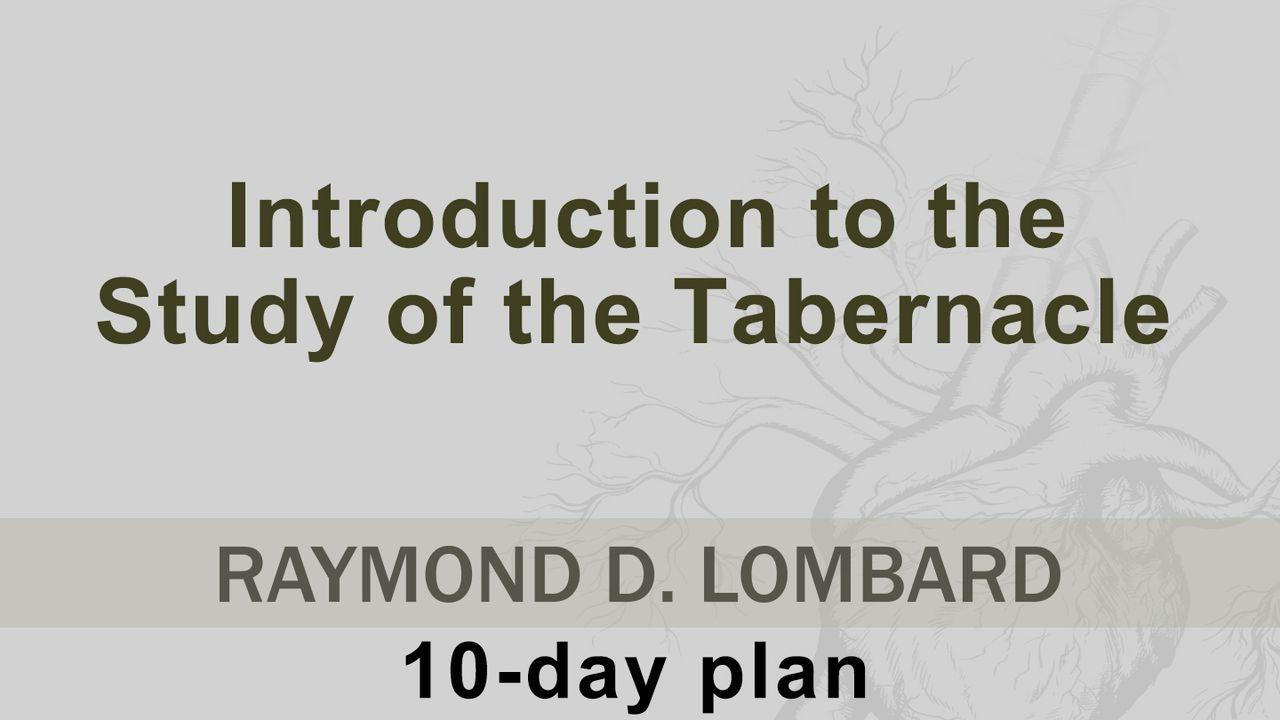Introduction To The Study Of The Tabernacle預覽

WHY WAS THE TABERNACLE PROVIDED?
It was God's dwelling place among Israel for nearly 500 years, from the time of Moses with God on Mount Sinai until the completion of the temple by King Solomon (1450B.C. – 960B.C.). So the tabernacle was only a temporary dwelling. The tabernacle is also called:
· tabernacle of witness – Numbers 17:7, 8.
· tabernacle of the testimony – Revelation 15:5.
The Bible gives three reasons why God gave Israel a tabernacle.
- It was the place where God met with the people.
In Exodus 25:21, 22, God clearly states that He would meet with the people from the mercy seat in the tabernacle (cf. Exod. 29:42, 43; Exod. 30:6). The mercy seat was the place where the blood from the sin atonement, was sprinkled (Lev. 16:14, 30). The mercy seat is the place (hilasterion Heb. 9:5) where the sprinkling of the blood satisfied God's wrath in that sin was punished. In 1 John 4:10, the Word declares that Jesus is our propitiation (hilasterion). John hereby declares that Jesus was the place where God met the sinner. The crucifixion of Jesus was the place where God's justice and His mercy met. It was on the cross that we have seen the grace of God bring the sacrifice for sin, which His holiness and justice required; on the cross in Jesus God's love paid the punishment that his justice required.
- It was the place where the Lord God dwelt among his people.
God wanted to dwell among His people to reveal Himself to them as their God. And let them make Me a sanctuary, that I may dwell among them (Exod. 25:8). We also read in Exodus 29:45: I will dwell among the children of Israel and will be their God. This is exactly how Israel got to know the true God. The people around them invented their own gods, but Israel had experienced and knew God as the God who concerns Himself with His people and one who had made history with them. Today the Lord does not dwell among His people in a tabernacle made by hand, but in the hearts of His children (1 Cor. 3:16; 2 Cor. 6:16; Eph. 2:19-22).
- It was the place of witness.
On two occasions in Numbers 17:7, 8 the tabernacle is referred to as in the tabernacle of witness. Of what did the tabernacle witness? The Ark of the Covenant with the stone tablets engraved with the Ten Commandments was in the Most Holy Place. These two stones speak of a broken law. The Ark with the broken law was covered by the gold mercy seat which fitted perfectly onto the ark of the covenant.
Besides the two stone tablets of the Law in the ark, there was also the golden jar of manna which was a testimony of God's provision for the forty years of Israel's wandering in the wilderness. With these, was the staff of Aaron that had budded to witness what tribe the Lord God had chosen to be the priestly tribe (Heb. 9:4).
Therefore the Most Holy Place of the tabernacle testified of
- God,
- a dysfunctional law,
- grace,
- blood and
- a covering.
It therefore testifies to the fact that a holy God by grace covered the dysfunctional law completely with blood. The primary testimony of the tabernacle was a prophetic testimony of Calvary. The tabernacle was a prophecy of Calvary!
In Christ we find the perfect answer to the spiritual meaning of the tabernacle. We read in John 1:14: And the Word became flesh and dwelt among us, (literally: "tabernacled") – and we beheld His glory, the glory as of the only begotten of the Father, full of grace and truth.
關於此計劃

The tabernacle and all that goes with it speaks to us of Christ (Heb. 10:20). Jesus Christ came and dwelt among us. The Old Testament is the lock, the New Testament is the key; what is the use of a lock without a key? Knowledge of the Old Testament is necessary to fully understand the New Testament. Learn more about the tabernacle and the accompanying rituals in this series.
More









